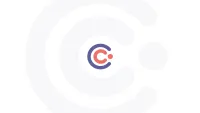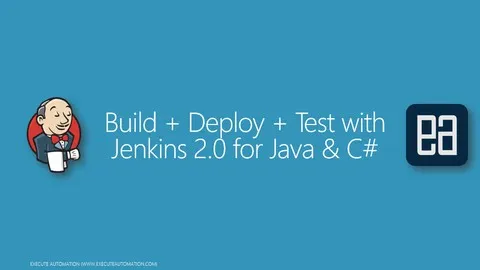
Continuous integration with Jenkins 
This course will teach you how to use Continuous Integration (CI) and Continuous Delivery (CD) tools to solve problems and get the most out of your development process. You will learn why Jenkins is the main CI tool, how to install and configure it on GCP Compute Engine, create your first Jenkins job, and use different build triggers. You will also learn about Cron syntax and how to integrate Jenkins with Git and GitHub. Finally, you will explore Jenkins artifacts and how to analyze the results of your jobs. Join this course to get the most out of your development process with CI & CD tools. ▼
ADVERTISEMENT
Course Feature
![]() Cost:
Cost:
Free
![]() Provider:
Provider:
Eduonix
![]() Certificate:
Certificate:
No Information
![]() Language:
Language:
English
![]() Start Date:
Start Date:
Self Paced
Course Overview
❗The content presented here is sourced directly from Eduonix platform. For comprehensive course details, including enrollment information, simply click on the 'Go to class' link on our website.
Updated in [September 05th, 2023]
Skills and Knowledge Acquisition:
1. Understanding CI & CD: Explore the challenges in software development and discover how CI & CD tools can provide effective solutions.
2. CI & CD Testing: Uncover the significance of Continuous Integration, its historical context, and the benefits it brings to software development.
3. Jenkins Selection: Learn why Jenkins is the preferred choice as the primary CI tool in the industry.
4. Installation and Configuration: Get hands-on experience as you install Jenkins CI on Google Cloud Platform's Compute Engine, along with crucial configurations.
5. Creating Your First Jenkins Job: Dive into practical implementation by creating your initial job in Jenkins, executing it, and interpreting the results.
6. Build Triggers: Explore various Jenkins build triggers, including on-demand runs, job dependencies, cron schedules, and SCM checks.
7. Cron Syntax: Gain insights into the Cron syntax and its utilization within Jenkins for scheduling tasks.
8. Git Integration: Configure Jenkins to work seamlessly with Git and GitHub, demonstrating the process of fetching repositories.
9. Artifacts Management: Understand Jenkins' artifact management capabilities, crucial for effective software development.
Contribution to Professional Growth:
- Elevate your expertise in Continuous Integration and Jenkins, essential skills for modern software development.
- Enhance your understanding of software testing, version control, and automation, contributing to more efficient and reliable development processes.
- Prepare for career opportunities in DevOps, software engineering, and IT roles that require CI/CD proficiency.
- Gain practical experience in setting up Jenkins on cloud platforms, a valuable skill in the cloud-native ecosystem.
- Learn to analyze Jenkins job results and make data-driven decisions to improve software quality and deployment.
Suitability for Preparing Further Education:
- Ideal for individuals looking to pursue advanced courses or certifications in DevOps, CI/CD, or cloud technologies.
- Provides a strong foundation for continuous learning in software development practices.
- Equips learners with hands-on skills for real-world CI/CD implementation and management.
- Supports career growth by keeping professionals updated with industry-standard CI/CD practices.
Course Provider

Provider Eduonix's Stats at AZClass
Discussion and Reviews
0.0 (Based on 0 reviews)
Explore Similar Online Courses

Managing My Money

Antimicrobial Stewardship: Managing Antibiotic Resistance

Python for Informatics: Exploring Information

Social Network Analysis

Introduction to Systematic Review and Meta-Analysis

The Analytics Edge

DCO042 - Python For Informatics

Causal Diagrams: Draw Your Assumptions Before Your Conclusions

Whole genome sequencing of bacterial genomes - tools and applications

Mastering Jenkins CI with Amazon AWS: Build DevOps Pipeline

Free Jenkins Tutorial - Build+Deploy+Test with Jenkins 20


Start your review of Continuous integration with Jenkins